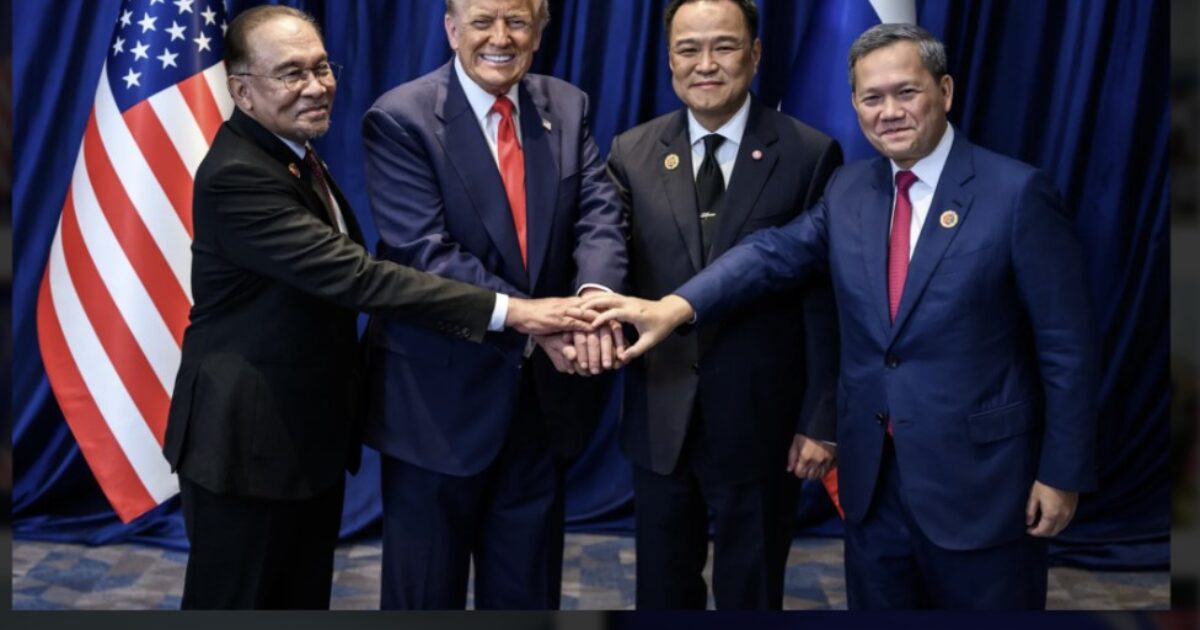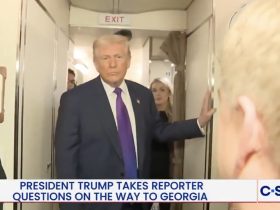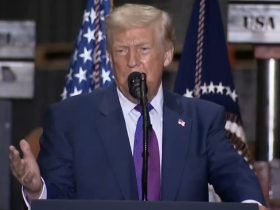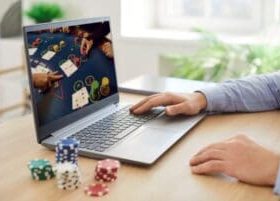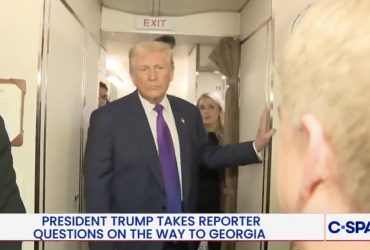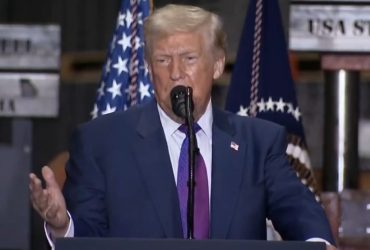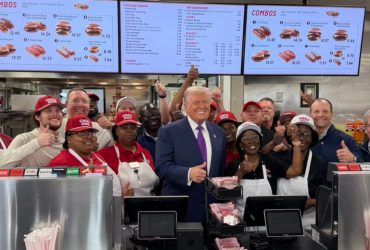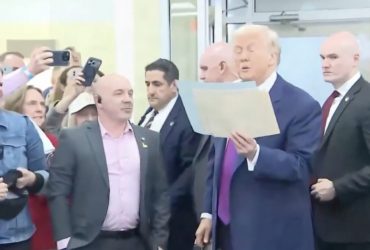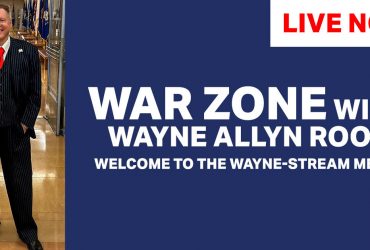President Trump shares a strong rapport with Asian leaders. Photo courtesy of the White House.
President Donald Trump just wrapped up an Asia tour, where it was clear that, despite what the mainstream media and protesters in the U.S. would have you believe, his diplomacy is working. Asian leaders like him and respect the United States.
Upon arrival in South Korea, President Trump was greeted by a military band playing “YMCA,” while President Lee Jae Myung wore a custom-made gold tie in his honor. South Korea presented Trump with several significant honors, including a gilded replica of the Gold Crown from Cheonmachong, a Silla-era artifact considered one of the country’s most ornate treasures. Trump also became the first U.S. president to receive the Grand Order of Mugunghwa, South Korea’s highest civilian award, granted by President Lee for his peace efforts on the Korean Peninsula.
Trump remains deeply admired by South Korea’s rising nationalist movement. Supporters of impeached President Yoon Suk Yeol have adopted Trump’s slogans and symbols, appearing at rallies with “Stop the Steal” posters, “Make America Great Again” hats, and American flags. For weeks earlier this year, thousands of pro-Yoon demonstrators gathered outside the National Assembly, presidential residence, and courthouses, chanting conservative U.S. political slogans such as “Make Korea Great Again” and “Stop the Steal.”
That movement’s connection to American conservatism became even more visible following the death of U.S. activist Charlie Kirk. On September 5–6, 2025, Kirk visited Seoul for the “Build Up Korea” conference, where he spoke about the Korea–U.S. alliance and resistance against communism, greeted by chants of “U-S-A! U-S-A!”
After his assassination on September 10, thousands of young Koreans dressed in black, waving U.S. flags and holding photographs of Donald Trump as they marched from Jamsil to Gangnam, chanting “We are Charlie Kirk.” Conservative youth groups, including Freedom University—which had previously supported Yoon, organized memorials across the country, with the largest at Sungnyemun Gate, where mourners left notes reading “Make Korea Great Again” and “Charlie Kirk is the protector of freedom.”
Japanese Prime Minister Sanae Takaichi warmly welcomed President Trump upon his arrival in Japan, praising his leadership and reaffirming the strength of the Japan–U.S. alliance. She announced her intention to nominate him for the 2026 Nobel Peace Prize, commending his role in mediating the Thailand–Cambodia border dispute and the Gaza ceasefire.
During their meeting at Akasaka Palace, Takaichi invoked the legacy of her mentor, the late Prime Minister Shinzo Abe, saying, “Prime Minister Abe often told me about your dynamic diplomacy.” She called Trump a “great leader” and said their talks were “very productive and fruitful,” marking “a new chapter in the golden age of the Japan–U.S. alliance.” She emphasized that their “ironclad, unshakable alliance and strong economic ties will continue to bring peace and prosperity to our peoples and to the Indo-Pacific.”
In a series of personal gestures, Takaichi presented Trump with a putter once used by Shinzo Abe and arranged for a gold-hued Ford F-150 to be displayed alongside two American-made Toyota vehicles outside the palace. When Trump saw the truck, he smiled and said, “She has good taste,” and, “That’s a hot truck.”
Takaichi also announced that Japan would gift 250 cherry trees and fireworks to Washington, D.C., in celebration of America’s 250th anniversary. In a lighter moment, she apologized to reporters for the late start of the meeting, joking that she had been watching Game 3 of the World Series featuring Japanese star Shohei Ohtani.
Trump responded graciously, praising Takaichi’s “strong handshake” and saying, “Anything I can do to help Japan, we will be there. We are an ally at the strongest level.” He predicted that she would “go down as one of the great prime ministers.”
Cambodian Prime Minister Hun Manet has been one of Trump’s most vocal admirers, nominating him twice for the Nobel Peace Prize: first in August 2025, following the U.S.-brokered ceasefire that ended months of clashes along the Thailand–Cambodia border, and again at the October ASEAN Summit in Kuala Lumpur. In his nomination letter, Hun Manet praised Trump’s “extraordinary statesmanship” and “visionary and innovative diplomacy” for helping broker the ceasefire that averted a potentially devastating conflict and saved countless lives.
On August 10, 2025, Yon Seng Yeath, the chief monk of Wat Ounaloum Monastery—considered the spiritual headquarters of Cambodian Buddhism, led a peace march in Phnom Penh to show support for Prime Minister Hun Manet’s nomination of President Trump for the Nobel Peace Prize.
Stopping outside the U.S. Embassy, Yon Seng Yeath declared that “70,000 monks are wholeheartedly supportive of our Cambodian Prime Minister Hun Manet to nominate you for the Nobel Peace Prize in recognition of your historic contribution in advancing world peace.” The monks expressed their “deepest gratitude” for Trump’s “visionary leadership” in preventing the Thailand–Cambodia conflict from escalating into what they feared could have become a regional catastrophe.
At the ASEAN Summit, Cambodian Prime Minister Hun Manet thanked Trump for his “tireless efforts” in making the peace deal a reality, calling it “a historic day” and saying the nomination expressed “the gratitude of the Cambodian people” for his leadership in achieving lasting peace.
Thailand’s Prime Minister Anutin Charnvirakul offered more restrained but genuine appreciation. At the same signing ceremony, he expressed his “sincere appreciation to President Donald J. Trump for your personal dedication to peace between our two countries,” adding that the agreement “creates the building blocks for a lasting peace.”
The post Trump’s Asia Tour a Great Success: From YMCA Dance to Nobel Prize Nominations and Japan’s Highest Honor appeared first on The Gateway Pundit.

